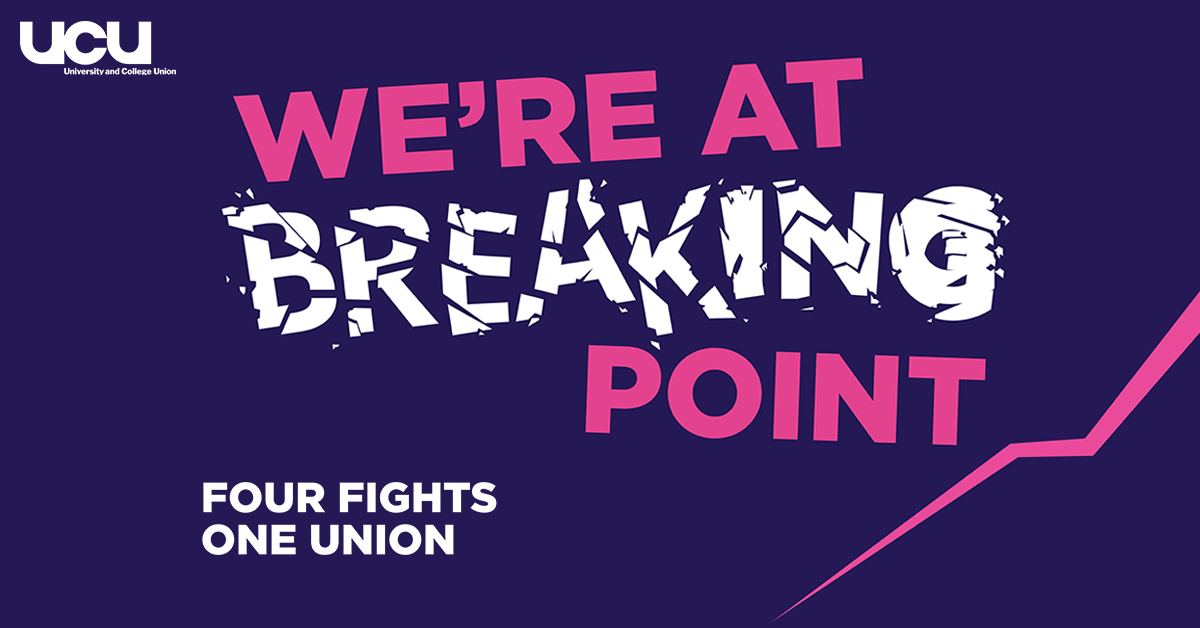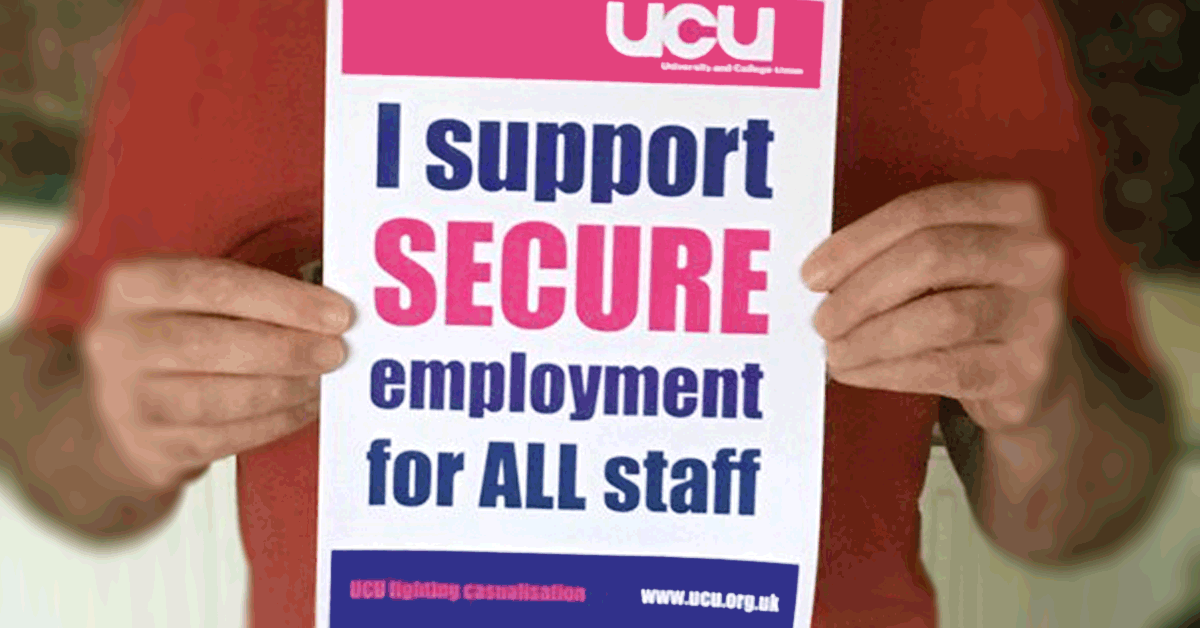
The UCU ballot: your chance to take action against precarious employment
27 October 2021
If you haven't got your ballot papers, you need to use this form to order a replacement by 5pm tomorrow (Thursday). And you need to post your votes in the prepaid envelope by next Tuesday, 2 November if they are going to count.
I've heard from larger branches that hundreds of their members have voted in the first week of the ballot. This is great news, and it means branches have put themselves in a position to reach the 50% turnout threshold required by law to take industrial action. But this ballot is a sprint, not a marathon. It ends next week, so post your papers back as soon as you can.
If you don't vote, and your branch doesn't reach that threshold, you will prevent not just yourself but your colleagues from taking action. You will allow employers to claim that staff are happy with another round of cuts to real-terms pay and pensions; persistent casualisation; intensifying workloads; and pay inequalities for women and disabled and BAME staff.
I want to talk more about one of the issues that animates the Four Fights dispute: casualisation.
UCU's report mapping the extent of precarious employment in HE has been updated. It shows how persistent the problem is, institution by institution, and it reminds us that casualisation is an equality issue, with women and BAME staff disproportionately likely to be on various forms of insecure contract.
And don't forget: the official statistics understate the true extent of precarity in the sector. They conflate permanent contracts with open-ended contracts that are in practice time-limited and they don't include outsourced workers.
Precarious employment is not a professional rite of passage. This is about people on hourly paid contracts earning less than minimum wage for the work they do. It's about the members I've talked to who have dependents to care for, and have to sign on for universal credit at the same time as doing an academic or professional services job. It's about the multiple members I've spoken with who have been made homeless at one time or another while working in the sector.
This is not something which you have to just accept for the next ten or twenty years. UCU is constantly winning victories against casualisation locally, with individual employers. Just look at this list of recent wins. Progress isn't just possible - it is happening all the time.
The Four Fights dispute presents employers with a list of demands for sector-wide change. You can see some of those demands here and a full breakdown here.
If we achieve even some of the things we are asking for, it will be historic: few, if any, UK unions have ever won collective agreements on secure employment in so many workplaces.
The USS dispute also addresses an aspect of casualisation. The pension scheme has become unaffordable for many precariously employed staff, with tens of thousands of eligible employees currently opting out of the scheme.
UCU's proposals for the 2020 USS valuation contained a new mechanism to allow members to join the scheme and pay zero or half-price contributions themselves, but still get the full benefit of the same employer contribution as other members. Unfortunately, these proposals were effectively vetoed by employers at the USS joint negotiating committee (JNC).
The only way to put this positive reform of USS back on the table now is if you vote YES for action over USS and give your union the strongest possible mandate.
When we surveyed members about industrial action in January and February this year, your responses showed that combating casualisation was just as strong a priority for you as protecting pay.
There is undeniable commitment from members to take action against precarity. We have a sector-wide collective agreement covering pay - now let's get one for casualisation as well.
Jo Grady
UCU general secretary
- PrintPrint this page
- Share



